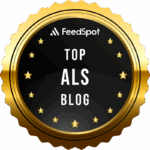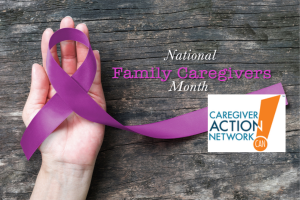Not Alone: Professional Caregivers Share Insights for World Autism Awareness Day
In honor of World Autism Awareness Day on April 2, this month, we talked with two seasoned caregivers at BAYADA Home Health Care in Tucson, AZ, who work with individuals that medical needs and have also been diagnosed with Autism Spectrum Disorder (ASD): Shana Kolman, Director of Skilled Nursing Operations, and Lacey Shirkey, RN, Clinical Educator, Skilled Nursing. Shana and Lacey sat down with us to share a bit about their in-home nursing practice, how they work with clients and families of clients with ASD, and some of the tools and technologies that best support their work.
Lacey: Thank you for sitting down with us. Autism Spectrum Disorder (ASD) is really exploding around the world and the more discussion we can have around it, the better we can serve those that need us. Every day we learn more about behavior
modification/intervention techniques, and how to holistically care for our clients with ASD.
Shana: Yes, we are always evolving with research. BAYADA, globally, is a large organization with multiple healthcare practices. In our skilled nursing office, we pull resources and tools across disciplines when needed. With ASD clients, we really start out by meeting with the individual and family to begin to understand the unique need the client has. Sometimes we’ll invite our behavioral health colleagues to the discussion for guidance as we build a plan of care. It is in this way that the nursing staff at BAYADA develop a plan for our client —specific to that client, that addresses not just their medical need, but their whole need.
Lacey: Involving the client in the process is crucial. If the individual with ASD isn’t involved in decisions being made about them, they may act out. When they can make decisions safely, in a controlled way, it can alleviate unwanted behavior.
We also always make sure to communicate what we are doing, so the client isn’t left to guess what next steps are to come. Involving the client in their own care helps us know what they like and dislike, so we can incorporate those things into daily activities with them, which also helps prevent behavioral issues. There are simple tactics we use in ASD care like setting and communicating timelines. “Ok, Mr. Client, we are going to the store for 20 minutes, then to the park for 30 minutes, then we will go home.”
Regimen and repetition are very important for clients with ASD, and the more we can build in structure, the better our outcomes. Something that is important for our caregivers and families to understand is that with ASD, we cannot expect every day to go the same as the day before. Everyone has bad days. What worked today may not work tomorrow. We need to be able to pivot and plan on the fly. But we start with a structure, where we know we usually have successful days, and we learn as we grow with our clients. There is always some trial and error at the beginning of our work with new clients.
Shana: Sometimes we see aggressive physical behaviors. When a client with ASD gets frustrated and they are unable to verbalize that frustration, they may hit, punch, or kick. We learn techniques not just to deescalate a behavior, but how to avoid one to begin with. For instance, instead of walking ahead or to the side of an ASD client when we are out and about, we could let them lead with a gentle hand on their back to guide the direction.
This technique addresses desire the ASD client has to lead their own activities, but allows the nurse a safe way to control behavior and stay ahead of the next moment. Watching our team work with our clients is like witnessing a dance sometimes.
Lacey: Yes, having a very finite behavior plan, the 1:1 support, and clear verbal communication, are key. We define triggers and develop ways to avoid them, or deal with them if they happen. Ultimately, it’s about making sure our client is living their best life.
Shana: We are blessed to be providing ASD care today versus 20 years ago. Today, we have so many technological options available to our ASD patients that are life-altering, or even life-changing. Personal tablets and a whole range of apps that help with so many daily tasks and with communication. And many of our ASD clients are very technology-savvy.
Lacey: Yes, technology has been a game-changer for us. Some of our kids with ASD use a an iPad with picture-based communication apps — they touch a picture that then verbalizes what they’re asking for, so they’re able to communicate their needs/wants, which they can’t do verbally.
Shana: Exactly! We can even have a client play personal sounds that have been recorded to indicate different wants and desires as we learn the client’s own language. You can see the joy in your client’s face when they are able to connect. Technology has even become an indispensable tool that allows our client’s to dive into their creative side and pursue their passions for music and theater.
We just heard about SimpliHere’s new release, too — we helped with the app when it was in development. We are looking forward to playing around with the new version and figuring out how it can help support us and our families and how we can integrate it into our ASD work!
Lacey: Things like the SimpliHere app help us serve our clients to the best of our ability everyday. We’re here to help families and ASD clients, and communication is central to that. The amount of burnout we see with mom, dad, grandparents — it hurts. They’re tired, they feel like they run into a wall everywhere they go. They feel like, “People don’t see me, they can’t see my child.”
That is what keeps me focused on doing better constantly. If there is an individual with ASD that isn’t living to their fullest potential, isn’t being engaged in the way that they need to thrive, and the family is burned out, we are here to help with that, to
help care for the client, and to provide resources.
Shana: When I think of ASD, I think of the word “alone.” I think of some of our clients and how badly they want to communicate with us. I think of the families and caregivers that need our support and respite. We want to crack that loneliness. We want to say, “I see you; I hear you.”
Click here to learn more about BAYADA Home Healthcare’s home behavioral healthcare services, or here to review our list of the best assistive apps of 2024, or visit the app store soon to download the new version of SimpliHere.
About SimpliHere
The mission of SimpliHere is to ensure efficient care and peace of mind for caregivers and their patients with neurological conditions that impact communication and mobility. Joanna Rosenberg founded SimpliHere to address communication gaps between caregivers and patients. Her personal experience when her mother lived with ALS exposed the challenges of communicating and understanding basic needs, as well as managing daily tasks. Download SimpliHere today!
About World Autism Awareness Day:
World Autism Month begins with the United Nations-sanctioned World Autism Awareness Day on April 2. This year marks the 18th annual World Autism Awareness Day.








